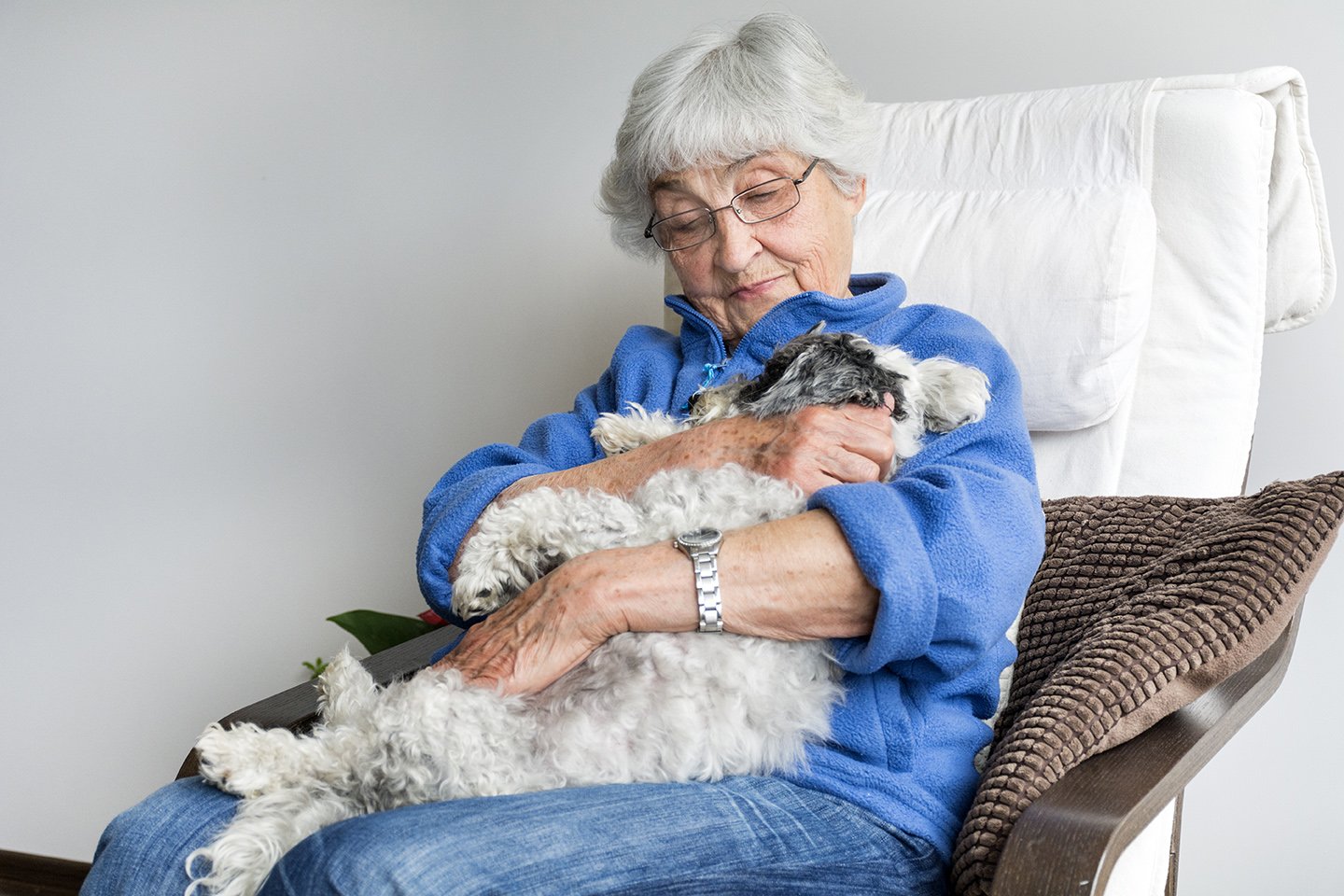
Supporting the Elderly with the Loss of a Pet
Elderly individuals face a multitude of losses as they navigate through life’s stages. Retirement, diminishing social circles, and health challenges often accompany aging. In the face of these adversities, pets emerge as steadfast companions, offering unwavering affection, companionship, and sometimes even a sense of protection. However, when the inevitable loss of a pet occurs, the impact on our seniors can be profound and challenging to overcome.
For many seniors, a pet becomes more than just a furry friend; it becomes a purposeful presence in their lives. The daily routine of caring for a pet provides structure and meaning, encouraging physical activity and fostering a sense of responsibility. Yet, when that companionship is abruptly severed, the void left behind can trigger a cascade of emotions, exacerbating feelings of loneliness, isolation, and despair.
The loss of a pet can also entail significant lifestyle adjustments for elderly individuals. Beyond emotional support, pets often serve as practical aids, assisting their owners in daily tasks and enhancing their overall quality of life. Simple activities like visits to the veterinarian or trips to the park for exercise can foster social interaction and a sense of belonging. Thus, the absence of a pet can disrupt not only emotional equilibrium but also social engagement and physical well-being.
Navigating grief after the loss of a beloved pet presents unique challenges for seniors. Limited access to support networks, financial constraints, and a reluctance to seek external assistance can impede the grieving process. It’s crucial for family members and caregivers to recognize the profound impact of pet loss on elderly individuals and offer compassionate support tailored to their needs.
Here are five key strategies for supporting seniors coping with pet loss:
Offer Support During Pet Illness:
Accompany elderly loved ones to vet appointments, ensuring they understand their pet’s condition and available treatment options. Provide emotional support and guidance as they navigate difficult decisions regarding their pet’s health.Listen:
Be a compassionate listener, allowing seniors to express their grief and share memories of their beloved pet. Avoid offering unsolicited advice and instead, offer a comforting presence during their time of need.Help with Other Tasks:
Assist with practical tasks such as grocery shopping, meal preparation, and household chores to alleviate the burden of grief-related stress. Respect their autonomy by seeking permission before intervening in their daily routines.Consider Getting Another Pet:
Approach the topic of adopting a new pet with sensitivity, acknowledging that the decision is deeply personal and should not be rushed. Encourage seniors to explore the possibility of fostering or adopting a new pet when they feel ready.Encourage Professional Support:
Suggest participation in pet grief support groups or individual counseling to facilitate healing and emotional processing. Respect their autonomy in deciding whether to seek professional assistance, offering gentle encouragement and support along the way.
Supporting elderly individuals through the loss of a pet requires a delicate balance of empathy, understanding, and practical assistance. By acknowledging the significance of pet companionship in their lives and offering tailored support, we can help seniors navigate grief and find solace in cherished memories. Ultimately, with the unwavering support of family, friends and community resources, elderly individuals can begin to heal and embrace life’s journey with renewed resilience and hope.
Pet Loss and Human Emotion: Guiding Clients Through Grief - Scholarly
Blue Moon Senior Counseling - Licensed Clinical Social Worker
Sources:




